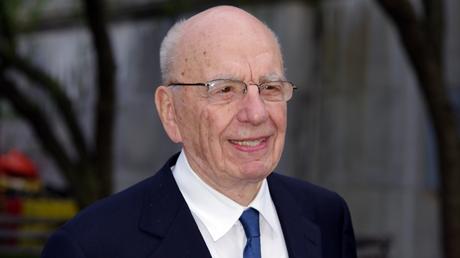The mass resignation of all board members but one of NBN Co – the company charged with rolling out the National Broadband Network (NBN) – should come as no surprise to anyone observing the NBN debate.
On one reading, it can simply be seen as a move by the board members to jump before they are pushed.
New communications minister Malcolm Turnbull has made no secret of his lack of faith in its directors to deliver the NBN, repeatedly questioning their prior experience in large-scale telecommunications and openly flagging the likelihood that the current board would be replaced by an incoming Coalition government.
In July, Turnbull appeared on Financial Review Sunday, telling Deborah Knight:
it is remarkable that such a large board doesn’t have anyone with hands-on experience in building a telecommunications network or running one.
With Turnbull recently hinting at an intention to install Ziggy Switkowski in the role of executive chairman, saying the former Optus and Telstra CEO was “highly qualified” and “eminently suitable” to lead the Coalition’s revamped NBN construction, it must have been obvious to Siobhan McKenna and her fellow board members their days were numbered.
By resigning en masse, they have removed the opportunity for the government to sack the board, which it seems clear Turnbull was gearing up to do.
So how justified are the Minister’s complaints?
Importance of experience
The notion that experience in running a major Australian telecommunications company is the most critical attribute for the leadership of the NBN must be questioned.
The current board was installed by Labor to lead the development of the NBN through its start-up phase.
Under original chairman Harrison Young, the most critical function of the board was to take responsibility for negotiations with Telstra over access to the infrastructure – the pits and ducts – required to roll out fibre to the premises (FTTP).
Experience in negotiating acquisitions, then, was arguably the most critical skill required by the board.
The provision of wholesale fibre to deliver broadband directly to the home was the core functional difference between Labor’s NBN model and the Coalition’s, which opts for a cheaper model that delivers fibre to nodes, or cabinets on street corners, with the connection to the home provided over Telstra’s existing copper cable.
Given that the Coalition plan rests on acquiring Telstra’s copper wire network to complete the delivery of broadband to the home, one would think that an ability to negotiate complex acquisitions remains a fundamental skill needed by members of the NBN Co board.
Most crucially, though, the implication that telco operational experience is essential for NBN Co board members points directly to the radical changes to the structure and purpose of NBN Co under the Coalition government.
Changing the business model
Criticism of the Coalition’s model has rested on the difference between its fibre to the node (FTTN) approach and the FTTP network promised under the original Labor plan.
Technical experts and internet geeks have been united in their cries for the new government to abandon its policy and retain the original FTTP NBN.
Turnbull has, unsurprisingly, rejected such calls, ridiculing the notion that:
we should, within days of the election, walk away from one of our most well-debated, well-understood and prominent policies.
It is questionable, though, that the true implications of the Coalition government’s broadband policy are as well understood as Turnbull claims. The raging arguments about FTTP versus FTTN, however passionate, largely miss the vital issue at the heart of the Coalition’s proposed changes to the NBN Co business model.
As Alan Kohler pointed out in a piece of spot-on analysis this morning:
[t]he key difference to the project that has come with the change of shareholder is not that two-thirds of the connections will be copper instead of fibre, which will make it cheaper and a bit slower. It is that competition will be allowed.
Wholesale vs market
The key to understanding what may happen to the NBN under the Coalition is the fundamental ideological difference between Labor’s nation-building, wholesale infrastructure model and the Coalition’s private sector-friendly, market-driven approach. This was hardly debated before the election.
By allowing competition in the provision of fibre infrastructure, the Coalition policy kills the business model of the NBN as conceived and currently operated. Profits from densely populated urban markets will no longer be available to offset the costs of delivering comparable services at equal prices to users in regional and rural areas.
Kohler is almost certainly correct in his belief that this is why the NBN Co board is jumping ship as the Government swings the main sail from fore to aft. Under the Coalition’s changes, NBN Co “will, in short, be a donkey, a money sinkhole, a political noose”.
Best to get out now, then, rather than stay on to defend a business model that the shareholders no longer wishes to pursue. Turnbull may be right in claiming that this board does not have the skills necessary to deliver on the Coalition’s NBN – its business model is radically different to Labor’s.
Essentially trusting the delivery of broadband infrastructure to market forces where viable, it will allow industry to cherry-pick the most profitable markets, competing to provide services in densely populated areas and leaving regional and rural Australia to be looked after by the government’s NBN Co service, with little or no private infrastructure competition and minimal profit.
Australia’s experienced telco executives are probably very well placed to deliver such a business model to NBN Co’s new government shareholder.
Industry input
This business model is an entirely rational one. It is underpinned by an ideology that gives primacy to market-driven competition at all levels of service provision, down to the wholesale infrastructure.
By allowing Telstra to operate its hybrid fibre-coaxial (HFC) cable network in competition with the NBN in the most profitable markets, the policy undermines the structural separation of Telstra that was achieved under Labor. This created a “level playing field” for genuine competition at the retail service provider level.
In light of the Coalition’s changes, though, industry players have already announced they will start competing at the wholesale level by providing fibre to the premises in profitable markets. TPG Telecom has declared it will connect fibre optic cabling to around 500,000 apartment buildings in capital cities, while Optus has openly flagged plans to install fibre from NBN Co’s nodes to customers’ homes under consumer contracts involving the kind of long-term service commitment currently available for mobile phone plans.
These developments will make a real difference to the prices Australians pay for broadband and the level of service they receive – largely positive differences in urban Australia, but not in regional and rural areas.
There will be lower consumer costs in our cities. FTTP services will almost certainly be delivered by industry more quickly in those markets than they would have under Labor’s national wholesale, universally priced NBN.

Down the track
The longer term implications for Australia, however, probably are not fully appreciated. Broadband is a utility.
Its potential to revolutionise health care and education services, to radically improve the delivery of government services, and to underpin the economic development of regional and rural areas is jeopardised by the abandonment of the NBN as a long-term, nation-building infrastructure project.
These are areas with which the research agenda driven by IBES is fundamentally concerned – issues that rely on an understanding of broadband as a critical utility for the future economic growth and social development of Australia.
In short, the promise of a broadband-led shift away from an economy reliant on mining and agriculture to one that rests on a mixed commodities market, unleashed by creative forces enabled by unimagined technological capabilities, is probably lost.
None of this should come as a surprise to Australians. The changed business model for the NBN is clearly at the core of the broadband policy the Coalition took to the election and the ideology Australia voted for on September 7.
As well as getting the jump on a likely mass sacking, the NBN Co board has effectively challenged the government to act on its policy. By accepting these resignations quickly, the government can appoint its own board and get on with the business of overhauling the NBN as it intends to do.
It remains to be seen what Australians make of the results.
This article originally appeared in The Conversation




